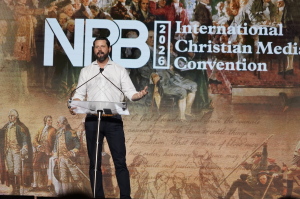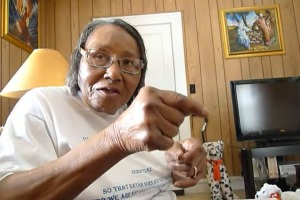Vanderbilt University's Religious Groups Lose Recognition
In the ongoing debate over religious freedom at Vanderbilt University, the school has ended its registration period, acknowledging 400 student organizations, out of 469 submissions, as university-affiliated. Twenty-six of those organizations accepted are faith-based, while more than a dozen religious organizations have lost their membership due to their refusal to accept the administrators' all-comers policy.
The religious groups accepted as university student organizations include: Presbyterian Student Fellowship; Vanderbilt Baptist Campus Ministries; Vanderbilt Hillel; Wesley/Canterbury Fellowship, a United Methodist and Episcopal student ministry; Commodores for Christ, a Church of Christ-affiliated organization; and Society of Saints Cosmas and Damian, the Catholic medical school organization, according the university's official news page.
The issue surrounding this disparity is in regards to the university's new all-comers policy, implemented in Jan. 2012. The policy prohibits campus groups from selecting members and leaders based on race, gender, sexual orientation or religion.
Christian groups on campus argue that the new policy violates "the central tenets of our faith," as being able to elect faith-filled leaders is integral to the survival of a religious group.
Eleven Christian groups opposing the "all-comers" policy formed Vanderbilt Unity, supported by the Alliance Defense Fund. These groups include Asian American Christian Fellowship, Fellowship of Christian Athletes, Cru, Medical Christian Fellowship, Navigators, Graduate Christian Fellowship, Bridges International, Lutheran Student Fellowship, Every Nation Ministries, Beta Upsilon Chi, and Christian Legal Society, according to Inside Vandy, Vanderbilt University's student newspaper.
When it came time to register for university student organization status in mid-April, the groups of Vanderbilt Unity purposefully issued their individual charters with specific faith requirements for membership and leadership positions.
Other religious groups, such as the university's Catholic student group, Vanderbilt Catholic, chose not to register at all.
These groups did not receive membership status, as they did not abide by the school's all-comers policy.
"Obviously, we are disappointed that some religious groups have either not applied for registered student status or submitted applications that do not comply with the policy. We will continue our conversations with them into the next academic year," Provost and Vice Chancellor for Academic Affairs Richard McCarty said in a statement.
"These student groups continue to be welcome to meet on campus and can rent spaces through the Office of Reservations and Events. They may also communicate with students using the university's email, through social media and certain bulletin boards and kiosks on campus," he added.
Vanderbilt University will also make its on-campus Benton Chapel available for all worship services, free of charge.
Several privileges and benefits are included when student groups receive campus organization status, including using the Vanderbilt name. Other privileges, to name a few, include funding from the university, use of the university's facilities for regular business, use of the school's technological domains, including URLS, and ability to participate in the university-run recruitment fair, as stated in Vanderbilt University's 2011-2012 student handbook.
According to the Vanderbilt University website, the all-comers policy was enacted in the beginning of 2012 after a student issued a complaint in 2010 that he had been banned from joining a student organization due to his sexual orientation.
The Christian students argue that the all-comers policy violates their religious freedom. In a statement issued April 9, Vanderbilt Unity argued for its freedom to express religion on campus.
"Until recently, Vanderbilt explicitly protected the freedom of all student organizations to select members and leaders who shared and supported the group's purpose, including – for religious groups – its faith," the statement read.
"Each of our 11 organizations is a faith-based group dedicated to sharing the light of the Gospel of Jesus Christ on campus. As such, we simply cannot allow those who do not share our faith to lead our ministries, as Vanderbilt now demands," the statement added.
Vanderbilt Unity then released a short video entitled "Leadership Matters for Religious Organizations" on April 18. The video features several Vanderbilt students speaking on the importance of being able to elect faith-filled leaders and members to their religious organizations.
"If we really are an organization with religious beliefs, it's not only important but necessary that our leaders share those beliefs," says one student featured in the video.
"If we can't ask our leaders to be religious, what's the point of the group?" questions another.
The small, private university, located in Nashville, Tenn., continues to argue that the all-comers policy was not employed to quell religious freedom, but to rather assert non-discriminatory practices on campus.
"All along, we have stressed that the policy is about rejecting discrimination and not about restricting religious freedom. We firmly believe the two principles can coexist on the Vanderbilt campus, and are gratified that many of our religious student organizations agree," Richard McCartney said in the statement.
Similarly, Beth Fortune, vice chancellor for public affairs at the university, previously told The Washington Post, "This debate is about nondiscrimination, not religious freedom, and we stand behind our policy."



























